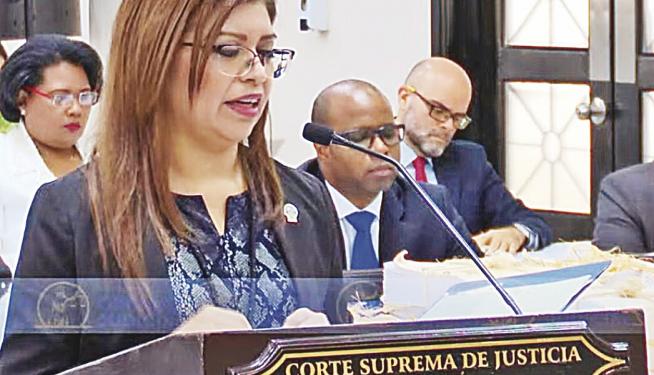Prosecutor asks for up to 12-year sentence for Lava Jato quartet

Isis Soto, Second Specialized Prosecutor against Organized Crime, called on June 29 for, a sentence of 5 to 12 years jail time for Jürgen Mossack and Ramón Fonseca Mora, co-founders of the extinct firm Mossack Fonseca, for the alleged commission of the crime of money laundering, in the Lava Jato case.
The prosecutor requested the same penalty for Edison Teano and María Mercedes Riaño, two former collaborators of the firm.
The four are part of the group of 32 people prosecuted in the court of criminal judge Baloisa Marquínez. The prosecution has maintained throughout the process that they are accused not of the sale and constitution of public limited companies, but of allegedly facilitating the crime of money laundering through companies and foundations, and providing services as legal professionals, activities headlined around the world as “The Panama Papers” which spawned a Netflix movie.
The prosecutor maintained that Mossack Fonseca used the national financial system to hide funds from illegal activities. She maintains that both the firm and Mossack Fonseca do Brasil (in charge of Riaño) carried out innumerable financial transactions with money of illicit origin.
He also explained that thanks to the investigations carried out by the Brazilian authorities, it was possible to establish that the Brazilians Mario Goes, Renato Sousa, David Muino, Roberto Trombeta, Ademir Aguada, and Pedro Barusco, all prosecuted in that country for financial crimes, laundering, and corruption, hid funds through various limited companies linked to Mossack Fonseca do Brasil.
Although Guillermina McDonald, a lawyer for the partners Mossack and Fonseca Mora, has said that the firm had no relationship with the Brazilian office, since the owner of it was Riaño, the prosecutor maintains that it has been proven that clients in Brazil, like Aguada and Trombeta, were given care and services when they visited Panama.
She also explained that the prosecutor’s office managed to provide in the file a series of red alerts issued by the Financial Analysis Unit (UAF) on Mossack and Fonseca Mora for suspicious transactions.
The prosecutor assured that Riaño, destroyed information related to the activities of Mossack Fonseca do Brasil, fearing a raid by the Brazilian Federal Police. In addition, it was verified that she received cash from her clients in Brazil.
Soto said it is clear that Riaño hid and covered up the transactions of Mossack Fonseca do Brasil (a company incorporated in the British Virgin Islands in 2009), despite the fact that the company did not show operations in Brazilian territory.
The prosecutor alleged that Teano maintained a high degree of participation in the operations of Mossack Fonseca and that he appeared as a representative of the firm in Brazil made constant trips to Brazil to promote the firm’s services to potential clients and is described as the link between the offices of both countries.
She explained that in the raid carried out by the DIJ at Teano’s residence, information was found related to orders to destroy emails related to activities in Brazil.





